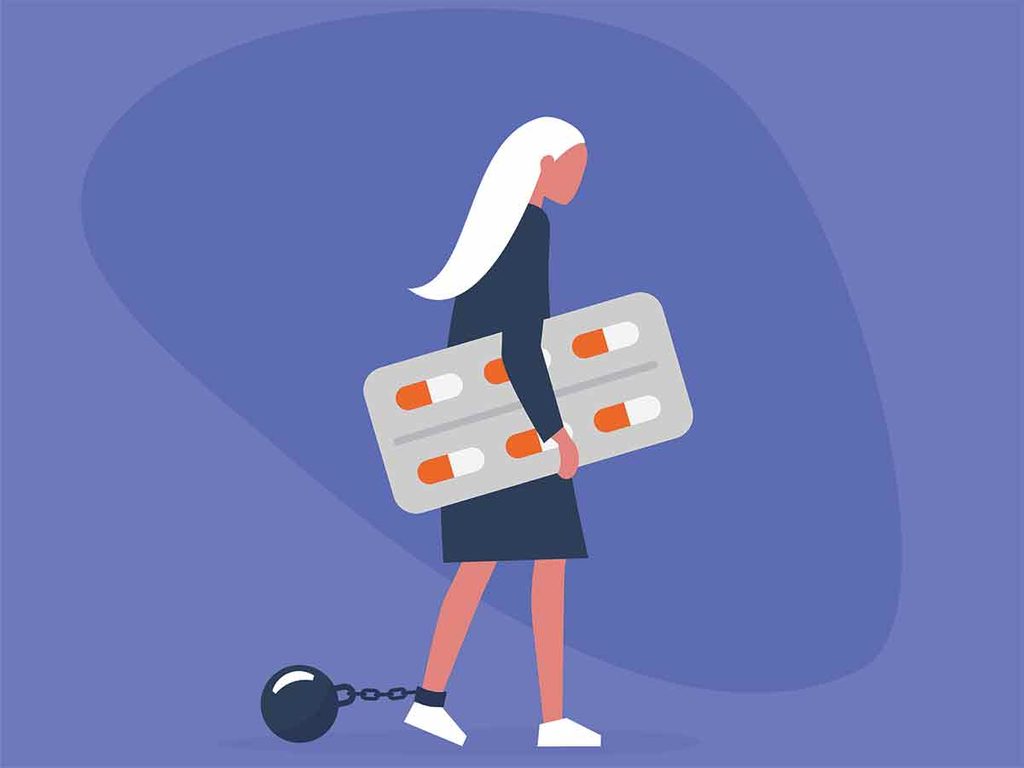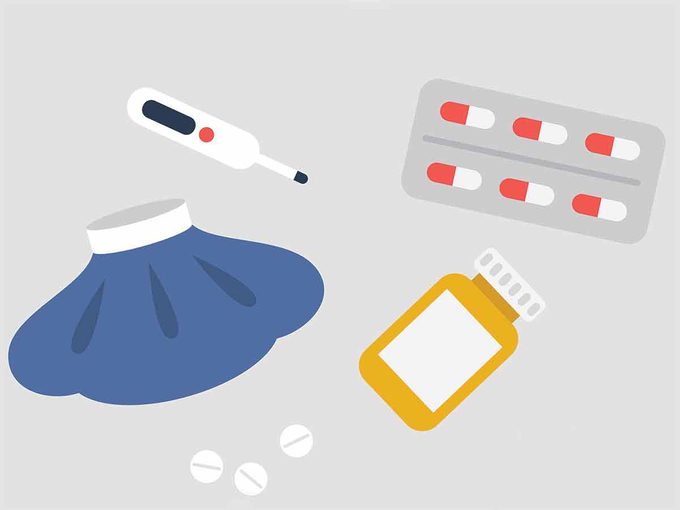Medication Side Effects: What to Expect and How to Cope

We break down the side effects of five common medications and how to deal with them.
We’ve all held that long sheet of possible side effects that came with our medication and felt bewildered by the litany of conditions that could come, from swelling and weight gain to seizures and suicidal thoughts. It can be intimidating, to say the least.
“Often my patients come to me and haven’t taken their medication because they were so scared by the printouts,” says Dr. Rhonda Church, a family physician in Bridgewater, Nova Scotia and co-author of Take As Directed: Your Prescription for Safe Health Care In Canada. And even after taking their medication as prescribed, her patients frequently feel uncomfortable and nervous if they notice a new symptom. Here’s what you need to know.

Are you experiencing a side effect?
“Whenever people experience anything unusual after taking a new medication often they assume that it is a side effect, when it may not necessarily be,” she says. For example, someone taking an antibiotic for pneumonia may feel light-headed and ascribe it to the antibiotic, when in fact the illness itself may be to blame. Other factors that may cause a person to feel unwell include an incorrect diagnosis, the wrong dose of the medication, or an allergic reaction to the medication. (Also, make sure to ask your doctor if it’s safe to exercise while on the medication.)
But side effects do of course happen—a number of studies estimate that between 10 and 20 percent of hospital admissions are due to side effects from medication, says Philip Emberley, Director of Pharmacy Innovation for the Canadian Pharmacists Association. (Also, be sure you’re not mixing certain medications and supplements.)
“It can be very difficult to predict what people will experience when they start a new medication,” he says. “The whole area of side effects is very individual, and we all react differently’some people will experience no side effects, while others may experience several.”
So how can you know if what you are experiencing is actually due to the medication you are taking? Is it simply “psychosomatic” because you may be worried about side effects? Or is it something you should be concerned about?

What are the potential side effects of common medications?
Birth control pills
Don’t panic: Breast tenderness and weight gain are well-known, but some women don’t realise how common it is to spot and bleed in-between periods. “Some women stop taking their pills because they think they aren’t working, but then they come to me with different side effect altogether: pregnancy,” says Dr. Church. (While we’re on the topic—when was the last time you explored your birth control options?)
See a doctor: Chest pains, shortness of breath or a sudden swelling in the leg could be a sign of a blood clot in the leg or the lung.
Anti-depressants
Don’t panic: Drowsiness and headaches are common. “In most cases I’d say ride it out,” says Dr. Church. If the medication is causing sleepiness, speak with your doctor about taking it at night. “Though most people don’t like to talk about it, sexual dysfunction can be a problem,” she says. “Don’t’ be afraid to mention it to your physician.” (Also, learn about other treatment options for mood disorders.)
See a doctor: Modern anti-depressants, called SSRIs (for selective serotonin reuptake inhibitors) come with fewer risks compared to the tricyclic medications used in the last century. But though rare, severe side effects can occur, such as feeling more depressed.
Over-the-counter pain killers
Don’t panic: An upset stomach, especially with non-steroidal, anti-inflammatory medications like ibuprofen, is extremely common, and taking medication with food or milk should do the trick. (Learn how much headache medication you should be taking.)
See a doctor: Using OTC pain-killers on a long-term, regular basis, however, can cause severe side effects: Used regularly, paracetamol (e.g. Tylenol) can cause liver damage, and Aspirin, though good for the heart, can lead to ulceration of the stomach if used excessively for many years. “Chronic use of any medication can be very harmful,” says Emberley.
Lipid-lowering drugs
Don’t panic: Head and stomach aches are common, and some people prescribed niacin (a type of B-vitamin) may experience intense but non-harmful facial flushing.
See a doctor: Though rare, rhabdomyolysis—a breakdown of muscle cells—can be lethal if certain complications occur. A sudden onset of muscle pain or weakness, especially if you are taking a statin lipid-lowering agent, should send you to the hospital immediately.
Antibiotics
Don’t panic: Upset stomachs and yeast infections are common. Taking probiotics can help in some circumstances, says Dr. Church. “But unfortunately there just is not a single antibiotic that we can guarantee won’t cause a yeast infection,” she says. Weight gain can also be a side effect of antibiotics.
See a doctor: Some allergic reactions to penicillin can be lethal. “If you feel light-headed, your heart racing or short of breath right after taking it, go to a hospital immediately,” says Emberley. And the same goes for all prescriptions.

What’s the best way to handle side effects?
The bottom line, says Emberley, is that “most side effects are transient—give it a few weeks and they will probably go away.”
In general, says Dr. Church, the most common side effects, spanning the whole spectrum of drugs, are upset stomachs, drowsiness, headaches, constipation, and dry mouth (easily relieved by sugar-less candy).
“I have a general principle—start low and go slow. If somebody finds the side effects a nuisance, one of the things I may consider is lowering the dose,” she says. “But I tell all my patients to be active, and knowledgeable, and to take their own health into their own hands: They should ask their physicians and pharmacists about common side effects and what the red flags are.”
Next, see the things Canadian doctors wish they could tell you.




